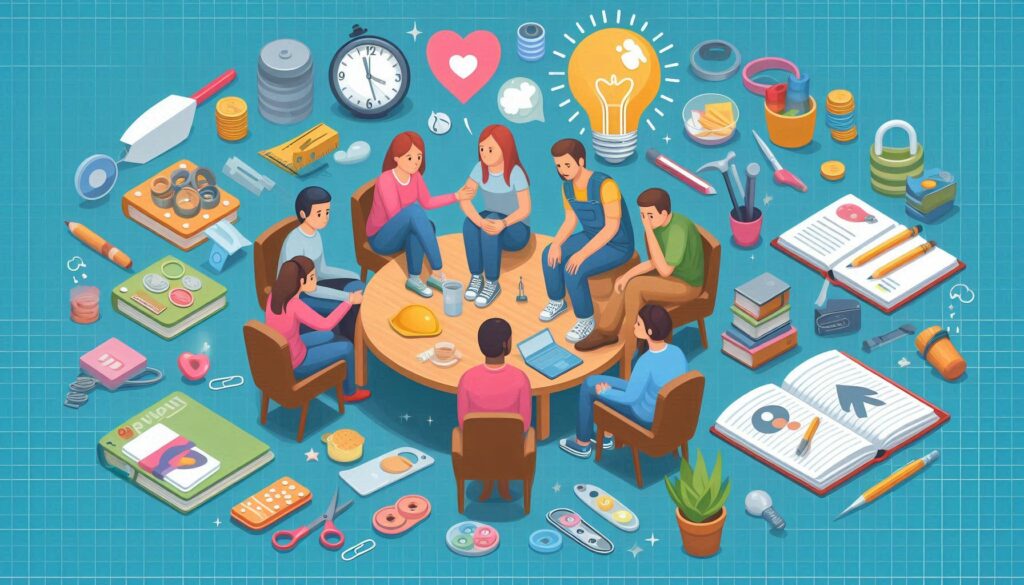How to Transform Lives with Mental Health First Aid: Essential Strategies to Support and Uplift Those in Crisis

In our fast-paced world, mental health challenges have become increasingly prevalent, affecting individuals from all walks of life. While professional support is crucial, there’s a growing need for immediate intervention and assistance during mental health crises. Enter mental health first aid—a vital skill that empowers individuals to provide compassionate and effective support to those experiencing emotional distress. In this comprehensive guide, we delve into the intricacies of mental health first aid, equipping you with the knowledge and strategies to make a positive impact during challenging times. From fostering empathy and effective communication to recognizing and addressing stigma, we’ll explore the essential elements of mental health first aid. Additionally, we’ll delve into practical techniques for crisis intervention and de-escalation, emphasizing the importance of active listening, safety, and ongoing support. Furthermore, we recognize the significance of self-care and resilience for mental health first aiders, ensuring their well-being and ability to provide unwavering support. Join us on this journey as we navigate the intricacies of mental health first aid, empowering ourselves and others to navigate mental health challenges with compassion, understanding, and effective intervention.
Understanding Mental Health First Aid: A Comprehensive Overview
In the ever-evolving landscape of healthcare, mental health first aid stands as a cornerstone of support for those experiencing mental health crises. This timely assistance mirrors the urgency given to physical ailments, acknowledging that mental well-being is just as crucial to our overall health.

Mental health first aiders serve as compassionate guides, providing a lifeline of support during moments of distress. Their expertise lies in recognizing early signs of mental distress, intervening with sensitivity, and connecting individuals to the appropriate professional resources. Their role extends beyond crisis response, actively fostering mental well-being and challenging the stigma that has long shrouded mental health issues.
By empowering individuals to prioritize their mental health and seek assistance without hesitation, mental health first aid transforms our society into one that values mental and physical well-being equally. It shatters the barriers of stigma, ensuring that mental health receives the same attention and importance, leading to a healthier and more compassionate world.
Mental health first aid acts as a powerful mitigator of mental health crises. Equipping individuals with the knowledge and skills to respond effectively to mental health challenges, prevents situations from spiraling out of control and promotes timely intervention. This proactive approach not only benefits those experiencing mental distress but also contributes to a more resilient and supportive society.
Embracing mental health first aid is an investment in a society that cherishes empathy, inclusivity, and support. It empowers individuals to seek help without fear of judgment, cultivates a culture of well-being, and ultimately leads to a more harmonious and thriving community.
Building empathy and communication skills for mental health support
At the heart of effective mental health first aid lies the ability to connect with individuals in distress through empathy and skillful communication. These essential qualities create a safe space where individuals feel understood, supported, and encouraged to share their concerns.
Active listening is a cornerstone of empathy-building. It involves giving the individual your undivided attention, allowing them to express their thoughts and feelings without interruption or judgment. Maintain eye contact, nod appropriately, and avoid distractions to convey your genuine interest in their well-being.
Non-judgmental communication is equally crucial. Refrain from expressing personal opinions or offering advice unless explicitly requested. Instead, use open-ended questions to encourage the individual to elaborate on their experiences. These questions should be phrased in a way that invites exploration rather than seeking specific answers.
Recognizing nonverbal cues is another important aspect of communication. Pay attention to body language, facial expressions, and tone of voice, as these may provide valuable insights into the individual’s emotional state. By being attuned to nonverbal cues, you can better understand their feelings and respond appropriately.

By cultivating these skills, mental health first aiders can establish a supportive environment where individuals feel safe to express their challenges and seek help. Effective communication and empathy lay the foundation for meaningful connections and interventions, ultimately contributing to positive mental health outcomes.
Recognizing and addressing stigma in mental health
Addressing the stigma associated with mental health is crucial for creating a society that values well-being. Education is key to dispelling myths and promoting understanding. Accurate information and open dialogue can reduce the shame and isolation often associated with mental health challenges.
Challenging discriminatory practices also helps combat stigma. Advocating for equal treatment in healthcare, workplaces, and society ensures equitable access to quality mental healthcare. Supportive environments and inclusive policies further reduce stigma’s impact. Seeking help for mental health should be seen as no different from addressing physical ailments.
Encouraging self-care and resilience among mental health first aiders is essential for their effectiveness. They need a supportive environment where they feel valued, understood, and empowered to prioritize their well-being. Addressing stigma, fostering open dialogue, and promoting self-care ensure mental health first aiders can effectively support others while maintaining their mental health.
By breaking down stigma, supporting self-care, and promoting resilience, we can create a society that values mental health as integral to overall well-being. This not only benefits individuals but also contributes to a healthier and more compassionate society for all.
Promoting self-care and resilience for mental health first aiders involves more than just providing tools and techniques. It requires fostering a culture where they feel supported, understood, and empowered to take care of themselves. This includes addressing stigma, encouraging open dialogue, and creating an environment that encourages self-care. By doing so, we can ensure that mental health first aiders are not only equipped to provide effective support to others but also prioritize their mental health and resilience, leading to a more compassionate and supportive society.
Effective strategies for crisis intervention and de-escalation
Mental health first aiders are indispensable figures in offering aid to individuals during mental health crises. To effectively execute their role, they must have a profound grasp of crisis intervention and de-escalation techniques, enabling them to confidently assist those in distress.
During a crisis, the power of active listening cannot be overstated. By devoting their full attention and listening without judgment, first aiders gain valuable insights into the individual’s perspective, fostering a sense of trust and easing the situation. Demonstrating genuine empathy and care can profoundly defuse the situation, providing emotional comfort and preventing further escalation.
Beyond immediate intervention, mental health first aiders recognize the significance of ongoing support. They ensure that individuals receive the necessary professional care and support through regular follow-ups, demonstrating their sincere concern and reinforcing the message that recovery is a shared journey.
Mental health first aiders stand as beacons of hope, their expertise guiding individuals through the turbulent waters of mental health crises. Their skillful application of crisis intervention and de-escalation techniques empowers individuals to reclaim control of their well-being, forging a path toward recovery. Their unwavering commitment and support leave an indelible impact on the lives of those facing mental health challenges, fostering resilience in the face of adversity.

Indeed, these individuals play a pivotal role in promoting mental health and well-being within our communities, serving as a vital resource for those navigating the complexities of mental health challenges.
Promoting self-care and resilience for mental health first aiders
While providing mental health first aid can be immensely rewarding, mental health first aiders must prioritize their well-being to ensure their effectiveness in supporting others. Engaging in regular self-care practices is essential for maintaining their mental and emotional health. This can include activities such as meditation, mindfulness, deep breathing exercises, or yoga, which can help reduce stress, improve emotional regulation, and enhance overall well-being.
Seeking support from colleagues, friends, family, or professional counselors is equally important, especially when feeling overwhelmed or in need of assistance. Mental health first aiders should not hesitate to reach out for help when needed, as this demonstrates strength and self-awareness, rather than weakness. Establishing clear boundaries between work and personal life is crucial to prevent burnout and maintain a healthy balance. This involves setting specific times for work-related tasks and ensuring sufficient breaks and time to disconnect from work-related matters.
Practicing self-compassion is essential for mental health first aiders. It involves treating oneself with the same kindness, understanding, and compassion that one would offer to others. It’s important to recognize that self-care is not selfish but rather a necessary component of providing effective support to others. By prioritizing their well-being and resilience, mental health first aiders can ensure their ability to provide compassionate and sustained support to those in need.
Conclusion
Mental health first aiders play a vital role in supporting individuals experiencing mental health crises. However, they must prioritize their well-being by engaging in self-care practices, seeking support, setting boundaries, and practicing self-compassion. This ensures their effectiveness in assisting others and contributes to a culture that values mental health and well-being for all.






